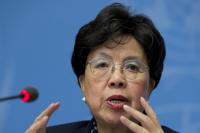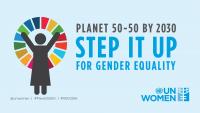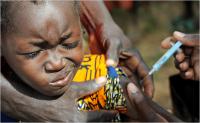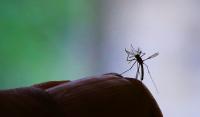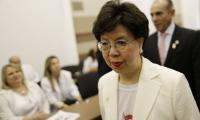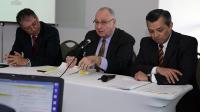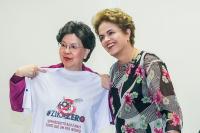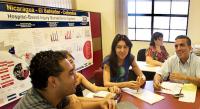You are here
News
-
03/16/2016 - An estimated 12.6 million people died as a result of living or working in an unhealthy environment in 2012 – nearly 1 in 4 of total global deaths, according to new estimates from WHO. Environmental risk factors, such as air, water and soil pollution, chemical exposures, climate change, and ultraviolet radiation, contribute to more than 100 diseases and injuries.
-
03/10/2016 - New research has shown a strong link between Zika infection and foetal malformations and neurological disorders, the head of the World Health Organization (WHO) has announced.
-
03/08/2016 - International Women’s Day is a time to reflect on progress made, to call for change and to celebrate acts of courage and determination by ordinary women who have played an extraordinary role in the history of their countries and communities.
-
03/02/2016 - Africa has an incredible opportunity to provide a better life for each and every child – and we know exactly how to seize it: provide universal acces0s to immunization across the continent to protect them from vaccine preventable diseases. We have seen the transformative impact of efforts to reach more children with life-saving vaccines. Child deaths in Africa fell by half over the past generation, in large part due to the use of high impact interventions such as immunization.
-
03/02/2016 - The above-average rainfall caused by El Niño that is expected in parts of South America until May could cause floods and increases in diseases spread by mosquitoes, including malaria and the Zika virus, the World Health Organization (WHO) has warned.
-
03/01/2016 - The Pan American Health Organization/World Health Organization (PAHO/WHO) and the Arbovirus Laboratory Network (RELDA) have agreed on new guidelines to improve lab confirmation of suspected Zika cases, even as more accurate tests are developed.
-
02/29/2016 - At the press conference rounding off an exhaustive agenda, a visibly moved World Health Organisation Director-General described her visit to the Pernambuco Maternity and Children’s Institute (IMIP). “What I found there were mothers devoted to their children, and health professionals doing everything possible to make them safe”, she revealed. Alongside Brazil’s Minister of Health, Marcelo de Castro, and Pan-American Health Organisation Director, Carissa Etienne, Chan appeared before journalists from all over the world after touring the Oswaldo Cruz Foundation (FIOCRUZ), the institution leading Brazil’s efforts to combat the threat from the Zika virus.
-
02/29/2016 - The IAEA will facilitate the transfer of a gamma cell irradiator to Brazil to help the country’s battle with the Zika virus, the Agency announced at an expert meeting in Brasilia today. It could, in a few months, help scale up the production of sterile male mosquitoes to be released in selected areas of the country mostly affected by the current Zika virus outbreaks.
-
02/25/2016 - The Director General of the World Health Organization (WHO), Margaret Chan, and the Director of the Pan American Health Organization (PAHO), Carissa F. Etienne , met yesterday with the president of Brazil, Dilma Rousseff and Brazilian authorities to learn about the actions taken by Brazil in response to infection by the virus Zika.
-
02/22/2016 - The Pan American Health Organization (PAHO) and the EQUATOR Network have launched their newest collaborative project to promote quality health research in the Americas: aPortuguese interface of the EQUATOR website that will translate key material on good research reporting and bring together existing Portuguese translations of reporting guidelines.


